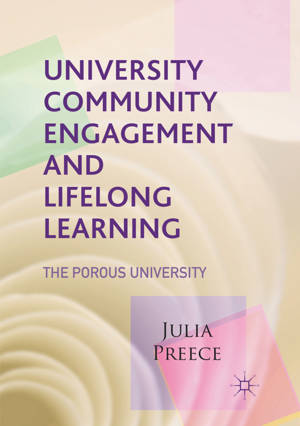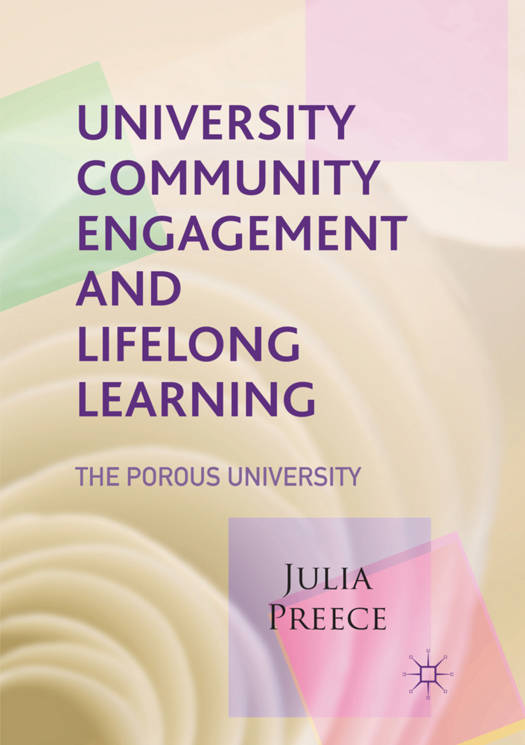
- Afhalen na 1 uur in een winkel met voorraad
- Gratis thuislevering in België vanaf € 30
- Ruim aanbod met 7 miljoen producten
- Afhalen na 1 uur in een winkel met voorraad
- Gratis thuislevering in België vanaf € 30
- Ruim aanbod met 7 miljoen producten
Zoeken
University Community Engagement and Lifelong Learning
The Porous University
Julia Preece
Paperback | Engels
€ 94,95
+ 189 punten
Uitvoering
Omschrijving
This book offers a conceptual re-think of how university community engagement functions as a lifelong learning resource for communities. While having a specific focus on the South African context, it has important implications for other universities which are concerned with their communities, and makes a compelling argument for the university as a public good, in spite of current trends towards marketization and commodification of higher education. The book draws on a theoretical framework of capabilities, asset-based community development, and the adult learning concept of dialogue, to propose a model whereby the boundary walls of the university become metaphorically 'porous', so that community members feel free to interact with the university as equal members of society. A historical outline of African universities is provided, as well as an exploration of the evolution of terms for community engagement, service learning and learning cities; and an examination of the policy and practice implications for the ideological model of a porous university.
Specificaties
Betrokkenen
- Auteur(s):
- Uitgeverij:
Inhoud
- Aantal bladzijden:
- 214
- Taal:
- Engels
Eigenschappen
- Productcode (EAN):
- 9783319858401
- Verschijningsdatum:
- 12/08/2018
- Uitvoering:
- Paperback
- Formaat:
- Trade paperback (VS)
- Afmetingen:
- 148 mm x 210 mm
- Gewicht:
- 285 g

Alleen bij Standaard Boekhandel
+ 189 punten op je klantenkaart van Standaard Boekhandel
Beoordelingen
We publiceren alleen reviews die voldoen aan de voorwaarden voor reviews. Bekijk onze voorwaarden voor reviews.











